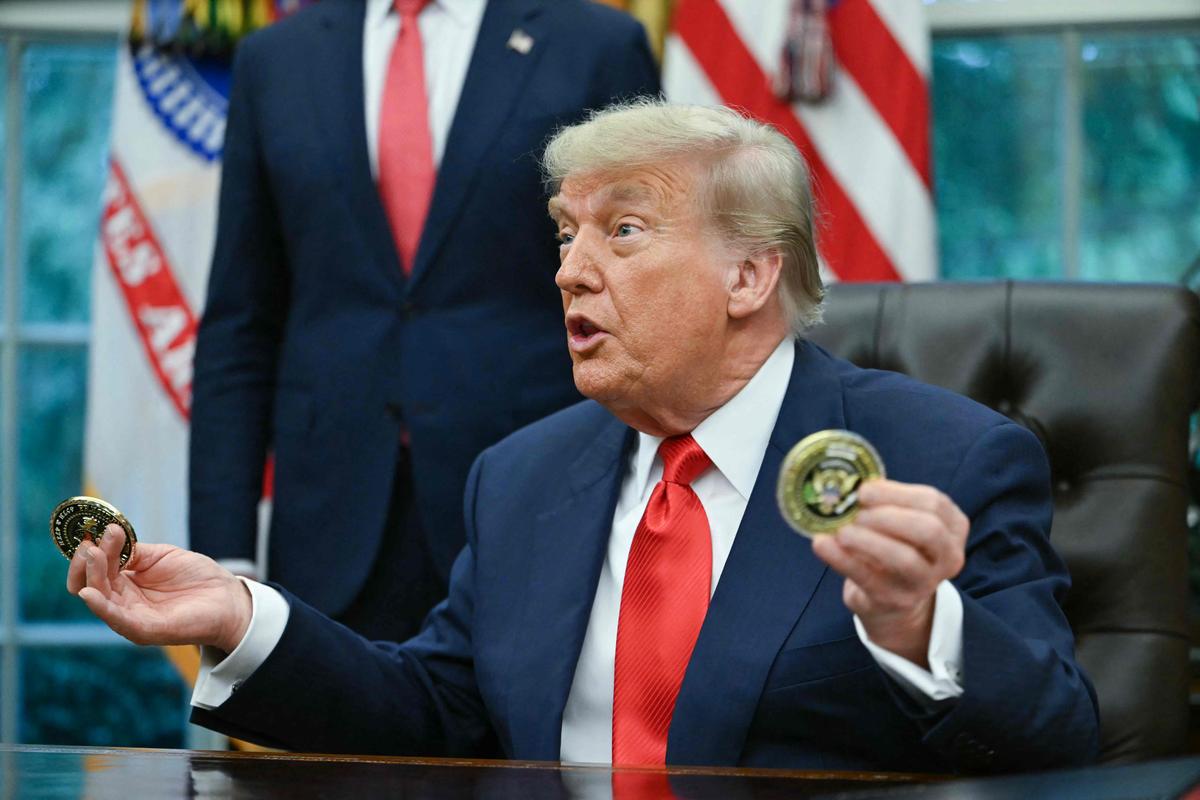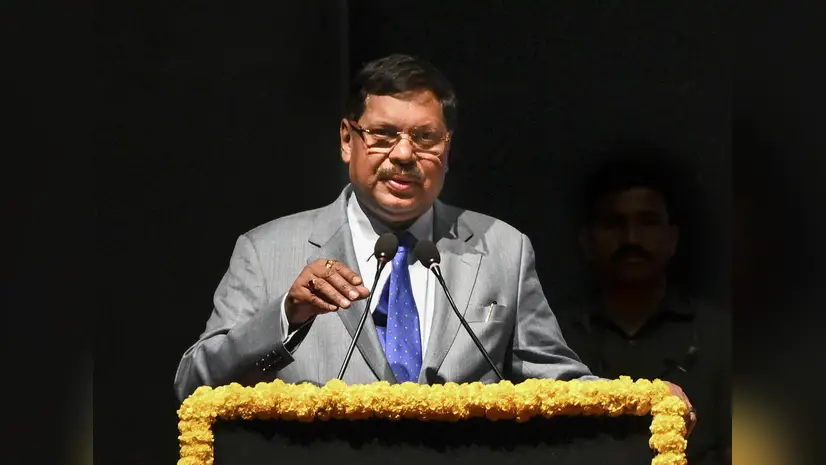- Courses
- GS Full Course 1 Year
- GS Full Course 2 Year
- GS Full Course 3 Year
- GS Full Course Till Selection
- Answer Alpha: Mains 2025 Mentorship
- MEP (Mains Enrichment Programme) Data, Facts
- Essay Target – 150+ Marks
- Online Program
- GS Recorded Course
- Polity
- Geography
- Economy
- Ancient, Medieval and Art & Culture AMAC
- Modern India, Post Independence & World History
- Environment
- Governance
- Science & Technology
- International Relations and Internal Security
- Disaster Management
- Ethics
- NCERT Current Affairs
- Indian Society and Social Issue
- NCERT- Science and Technology
- NCERT - Geography
- NCERT - Ancient History
- NCERT- World History
- NCERT Modern History
- CSAT
- 5 LAYERED ARJUNA Mentorship
- Public Administration Optional
- ABOUT US
- OUR TOPPERS
- TEST SERIES
- FREE STUDY MATERIAL
- VIDEOS
- CONTACT US
Supreme Court: A Statute Can't Take Away an Institution's 'Minority' Status
Supreme Court: A Statute Can't Take Away an Institution's 'Minority' Status
11-11-2024
- On 8 November 2024, the Supreme Court (SC) overruled its 1967 decision in the Azeez Basha case.
- The 1967 case had ruled that Aligarh Muslim University (AMU) was not a minority institution because it was created by a law (a statute) and not by the minority community itself.
- But In a 4-3 majority ruling, the Supreme Court’s new judgment says that just because an educational institution is set up by a law doesn’t mean it loses its minority status.
Background of the AMU Dispute:
- This case started because in 2006, the Allahabad High Court had cancelled amendments to the AMU Act, which had restored the university’s minority status.
- The court based this decision on the 1967 Azeez Basha judgment, saying that AMU was not a minority institution.
- The case then went to the Supreme Court.
Key Events:
- 1967 (S Azeez Basha case): The Supreme Court ruled that AMU was not a minority institution.
- Because AMU was set up by the Central Government through the AMU Act (1920) and not by the Muslim community.
- This decision meant AMU could not claim special rights as a Muslim minority institution.
- 1981 Amendment to the AMU Act: After the 1967 ruling, the government changed the AMU Act
- This amendment said that the Muslim community had set up AMU to help Muslims.
- However, the Court still did not recognize AMU as a minority institution.
- 2005-2006: AMU started giving reservations (special seats) for Muslim students in postgraduate medical programs.
- But the Allahabad High Court ruled against this, saying AMU was not a minority institution.
- 2019-2024: The case was sent to a 7-judge bench.
- Finally, in November 2024, the Court decided to overrule the earlier ruling, saying AMU can claim minority status.
Centre’s Arguments:
The government argued that making AMU a minority institution could:
- Lead to too many seats reserved for Muslims (up to 50%).
- Change how AMU is run, making it different from other national universities.
AMU’s Defense:
- AMU’s legal team argued that Article 30 is meant to protect the rights of minorities.
- They said the exemption from reservations for SCs and STs is not against the Constitution, but part of a balance to support both minority rights and equality for other groups.
The 2024 Supreme Court Ruling
- In November 2024, the Supreme Court ruled that AMU can claim minority status.
- This overruled the 1967 decision, and the Court said AMU should be treated as a Muslim minority institution under Article 30.
Majority vs. Dissenting Opinion:
- The decision was made by a 4-3 majority:
- The majority, led by Chief Justice D.Y. Chandrachud, ruled that the minority status of an institution should be based on a broader understanding, and statutory creation does not remove this status.
- Three judges disagreed with this view, with Justice Dipankar Datta strongly stating that AMU should not be considered a minority institution. The other dissenting judges raised concerns about the way the case was referred to a larger bench.
Article 30 and Minority Status
- Article 30 of the Indian Constitution says that minorities have the right to set up and run educational institutions of their choice.
- This gives special protections to minority educational institutions (MEIs), allowing them to make their own rules for admissions and other things.
- Article 15(5), added in 2006, says minority institutions do not have to reserve seats for Scheduled Castes (SCs) and Scheduled Tribes (STs).
- This has been a major point in the AMU case, as the Centre argued that if AMU is declared a minority institution, it could give reservations for Muslims (up to 50%), but SC/ST reservations would not apply.
- The Court explained that an institution's minority status should be determined based on who started the institution, not just who created it through a law.
- If the community behind the institution is a minority, the institution should keep its minority status.
- Incorporation by Statute Does Not Change Minority Status: The Court clarified that just because an institution is legally recognized by a law, it doesn’t mean the institution loses its minority status.
- The legal process used to make an institution official (like registering a university) doesn’t change its origin or who started it.
- Broader Meaning of Minority Status: The Court said we should think of minority status in a broader way.
- It is not just about who runs the institution, but also about who started it and for whom it was created.
- It’s also important to consider things like who funded the institution and whether it was set up to benefit the minority community.
-
State Aid and Regulation:
- The Court also said that while the state can regulate minority institutions, it cannot discriminate against them when providing help or funding.
- Article 30(2) protects these institutions from being treated unfairly just because they are run by a minority community.
- The Court pointed out that Article 30 is not just about teaching religion, but also about secular education.
- It is meant to protect the rights of minorities to run educational institutions that can offer a broad range of subjects, not just religious education.
- No Difference Between Institutions Set Up Before or After the Constitution: The Court ruled that there is no difference in how minority rights apply to institutions set up before or after the Constitution came into effect in 1950.
- Even if an institution was set up before 1950 or through a statute during British rule, it can still be considered a minority institution under Article 30.
- The Court also said that the right to manage an institution under Article 30 means that minorities should always have the power to run their institutions, even if the institution receives government funding.
- St Stephen’s College Precedent:
- The ruling also referred to the 1992 St Stephen’s College case.
- In that case, the Court said that even though St Stephen’s College in Delhi is funded by the government, it can still claim minority status because it was set up by a religious community.
Implications of the Ruling
For AMU:
- AMU can now claim minority status, meaning it can run the university as it sees fit, in the interest of the Muslim community.
- The university may implement reservations for Muslims, but this has not yet been directly decided by the Court.
For Other Minority Institutions:
- This ruling will affect other minority institutions in India.
- It confirms that minorities have the right to run their educational institutions in line with their community's interests.
On Reservations:
- The Court’s ruling does not specifically decide whether AMU must give reservations to SCs/STs.
- The issue of caste-based reservations versus religious-based reservations remains a debated topic.
Legal and Constitutional Significance
- This judgment shows the balance between minority rights (to set up and manage their institutions) and social justice (through reservations for backward classes).
- It reflects the Court’s view that minority institutions should have the right to autonomy, but at the same time, the larger national interest should be protected, ensuring fairness and equality.
Conclusion
The November 2024 ruling on AMU’s minority status is a major development in the legal discussion about minority educational institutions in India. It confirms that minority communities have the right to run their educational institutions under Article 30, but also brings up important questions about reservations and the balance between minority rights and the public good. This decision will shape future debates about how to treat religious minority institutions in India, especially when it comes to admissions and reservations.




